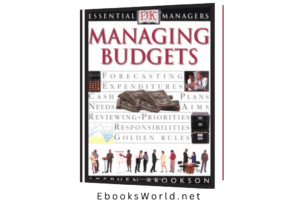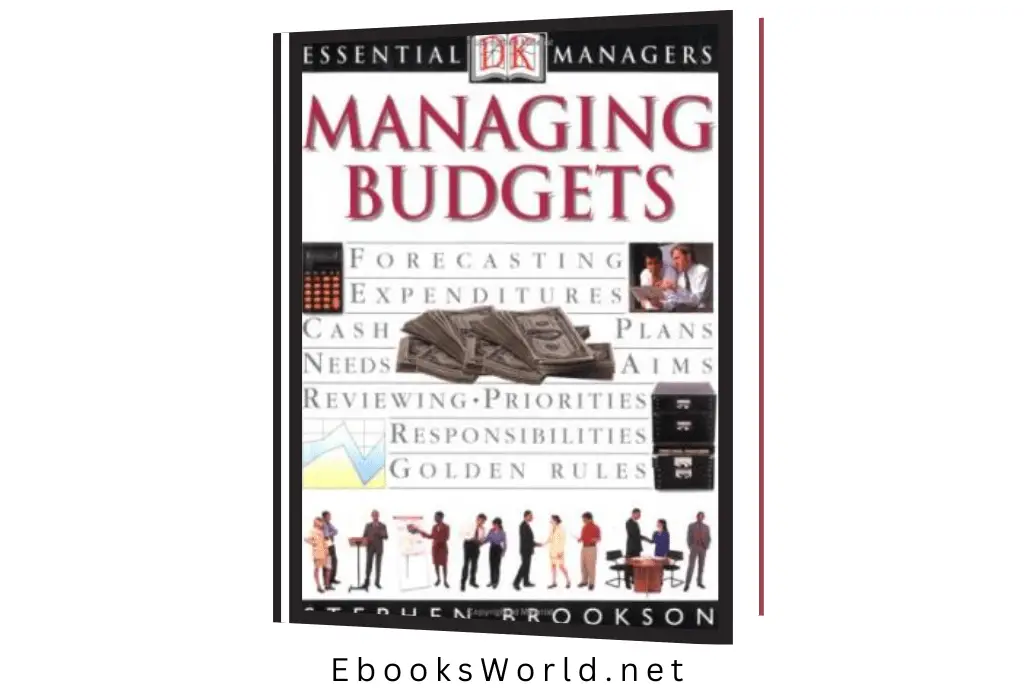Managing Budgets

“Managing Budgets” by Stephen Brookson is a practical guide that provides insights and strategies for effectively managing budgets in both personal and business settings. Here is a summary of the key concepts and principles discussed in Stephen Brookson’s book:
1. Understanding Budgeting:
– Brookson begins by explaining the fundamental concept of budgeting. He emphasizes that budgets are essential tools for planning and controlling finances.
2. Setting Financial Goals:
– The book stresses the importance of setting clear financial goals as a starting point for effective budgeting. Brookson encourages readers to define their short-term and long-term objectives.
3. Creating a Budget:
– Brookson outlines a step-by-step process for creating a budget. This includes estimating income, categorizing expenses, and allocating funds for various spending categories.
4. Budgeting Tools and Software:
– The book discusses the use of budgeting tools and software to simplify the budgeting process. Brookson provides insights into various tools and resources available for budget management.
5. **Cash Flow Management:
– Effective cash flow management is a key aspect of budgeting. Brookson explains how to monitor cash flow, predict future cash needs, and avoid financial pitfalls.
6. Debt Management:
– Managing debt is addressed in the book, with tips on how to incorporate debt reduction strategies into your budget and avoid excessive borrowing.
7. Expense Tracking:
– Brookson emphasizes the importance of tracking expenses meticulously. He provides guidance on how to record and categorize expenditures to gain a clear understanding of your financial habits.
8. Budget Variance Analysis:
– The book discusses how to compare actual spending to the budget and analyze variances. Brookson highlights the value of identifying areas where adjustments are needed.
9. Emergency Funds and Savings:
– The importance of building emergency funds and saving for future needs is covered. Brookson offers strategies for gradually increasing savings within your budget.
10. Investment and Wealth Building:
– Brookson touches on the concepts of investing and building wealth. He encourages readers to explore investment opportunities and consider long-term financial planning.
11. Budgets in Business:
– The book extends its budget management principles to the business world, discussing how businesses can use budgets for strategic planning, cost control, and financial forecasting.
12. Budgeting for Growth:
– Brookson addresses the role of budgets in supporting business growth and expansion. He provides insights into budgeting for new projects and initiatives.
13. Communication and Collaboration:
– Effective communication within organizations and households is emphasized. Brookson discusses how collaboration and transparency are crucial for successful budget management.
14. Financial Literacy:
– Throughout the book, Brookson promotes financial literacy, encouraging readers to improve their understanding of financial concepts and terminology.
“Managing Budgets” by Stephen Brookson serves as a comprehensive guide for individuals and businesses seeking to enhance their budgeting skills. It provides practical advice, real-world examples, and actionable strategies to help readers take control of their finances and achieve their financial goals. Whether you are looking to improve your personal financial situation or enhance your business’s financial management, this book offers valuable insights and guidance.







